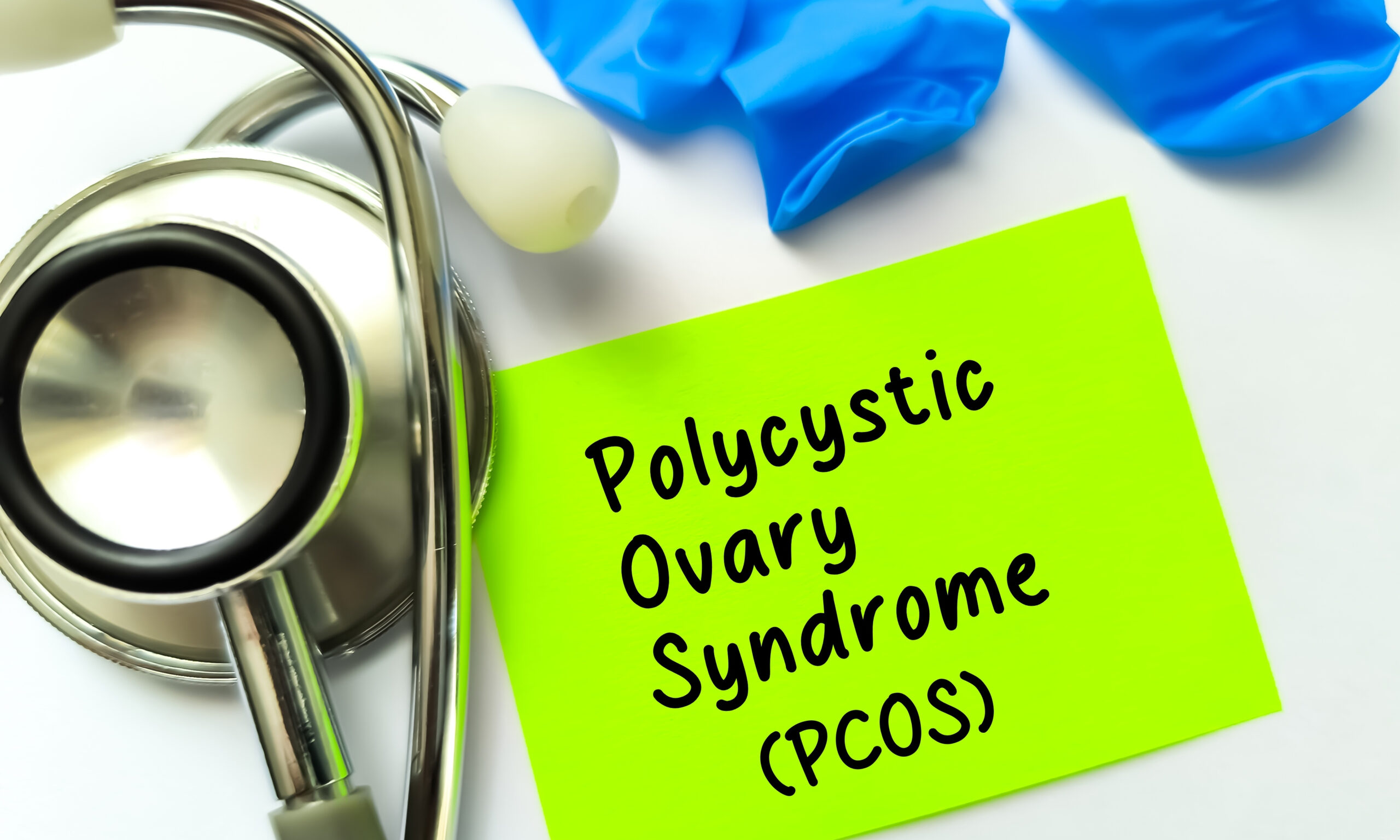Polycystic Ovarian Syndrome (PCOS) affects about 5 to 15% of women, often interfering with their ability to get pregnant. It’s important for women to understand PCOS and know the signs to look for so that they can seek appropriate treatment.
What Is Polycystic Ovarian Syndrome?
PCOS is a hormonal imbalance that happens when your ovaries produce excess hormones called androgens. This imbalance causes irregular periods, unpredictable ovulation, and small cysts on the ovaries that contain immature eggs. PCOS is the most common cause of infertility. It can develop anytime after puberty, but most women are diagnosed in their 20s or 30s.
Not everyone develops cysts, which are caused by undeveloped egg follicles that don’t mature and are not released by the ovaries. These cysts are not dangerous.
What Are the Symptoms of PCOS?
Common symptoms of PCOS include:
- Irregular periods, missed periods, or heavy periods. This is the most common symptom.
- Excess hair growth on the face, arms, chest, and abdomen. This occurs in about 70% of PCOS cases.
- Acne on the face, chest, and back that is difficult to treat.
- Excess weight and an inability to lose weight.
- Patches of dark skin on the neck, groin, armpits, and under the breasts.
- Skin tags on the armpits or neck. Skin tags are small flaps of extra skin.
- Thinning hair, bald patches
- Cysts on the ovaries that show up on ultrasound. The ovaries also may be larger than normal.
- Infertility due to lack of ovulation.
Not everyone has symptoms, so many women don’t know they have PCOS until they have trouble getting pregnant.
Causes of PCOS
PCOS may have a genetic cause, but other factors like obesity can increase your risk. The main physical causes are:
- High levels of androgens, which are male hormones, that keep the ovaries from releasing eggs. This is what causes irregular periods and cysts. It’s also responsible for acne and excess hair growth.
- Insulin resistance, which leads to high levels of insulin in the blood. This insulin is what makes the ovaries produce too much androgen. Being overweight can lead to this insulin resistance. Insulin resistance can also lead to diabetes.
- Chronic low-grade inflammation. This can be caused by high androgen levels, obesity, and intestinal imbalances. Diet and exercise can reduce this inflammation.
Risk Factors For PCOS
Risk factors for PCOS include:
- High insulin levels
- Family history
- Obesity
- Unhealthy diet
- Sedentary lifestyle
- Early puberty
- Low birth weight
- Certain environmental toxins
- Metabolic syndrome
Diagnosing PCOS
A diagnosis of PCOS can often be made by evaluating your symptoms and your medical history. Your doctor may also do an ultrasound to look for cysts on your ovaries, and blood tests to check your hormone and glucose levels.
PCOS and Pregnancy
It is possible to get pregnant with PCOS, with or without treatment, but without treatment, it can be difficult. PCOS also increases the risk of pregnancy complications including gestational diabetes, preeclampsia, high blood pressure, and preterm birth.
Treating PCOS
Treating PCOS depends on your symptoms, and whether or not you are trying to get pregnant.
If you are trying to get pregnant, treatment may include:
- Medications to induce ovulation including clomiphene, letrozole, and gonadotropins.
- Surgery to remove tissue in your ovaries that produces androgens. Because medications are usually effective, surgery is rare.
- In vitro fertilization where the egg is fertilized in a lab and then transferred to your uterus.
If you are not trying to get pregnant, treatment may include:
- Hormonal birth control, which may be birth control pills, an intrauterine device (IUD), patches, shots, or a vaginal ring. This helps to regulate your periods, and can also help with acne and hair growth.
- Medications to block the effects of androgens. This also helps with acne and hair growth.
- Insulin-sensitizing medication called Metformin, which can help to control your insulin levels.
In either case, eating a healthy diet, exercising, and maintaining a healthy weight can help to control your insulin levels and reduce PCOS symptoms.
PCOS and Other Health Risks
PCOS can increase the risk of several other health conditions including:
- Diabetes
- High Blood Pressure
- Depression and Anxiety
- Cardiovascular Disease
- Endometrial Hyperplasia
- Endometrial Cancer
- Sleep Apnea
In Closing
PCOS is relatively common, and can cause uncomfortable, sometimes embarrassing, symptoms. It can also make it difficult to get pregnant, but several treatments and lifestyle adjustments can help you to conceive and manage your symptoms. Most women with PCOS can get pregnant and live normal lives. If you are suffering from PCOS symptoms or are having trouble getting pregnant, Health Service Alliance is here to help. We are dedicated to providing compassionate, personalized, and accessible care regardless of your ability to pay. Reach out today to learn more.




